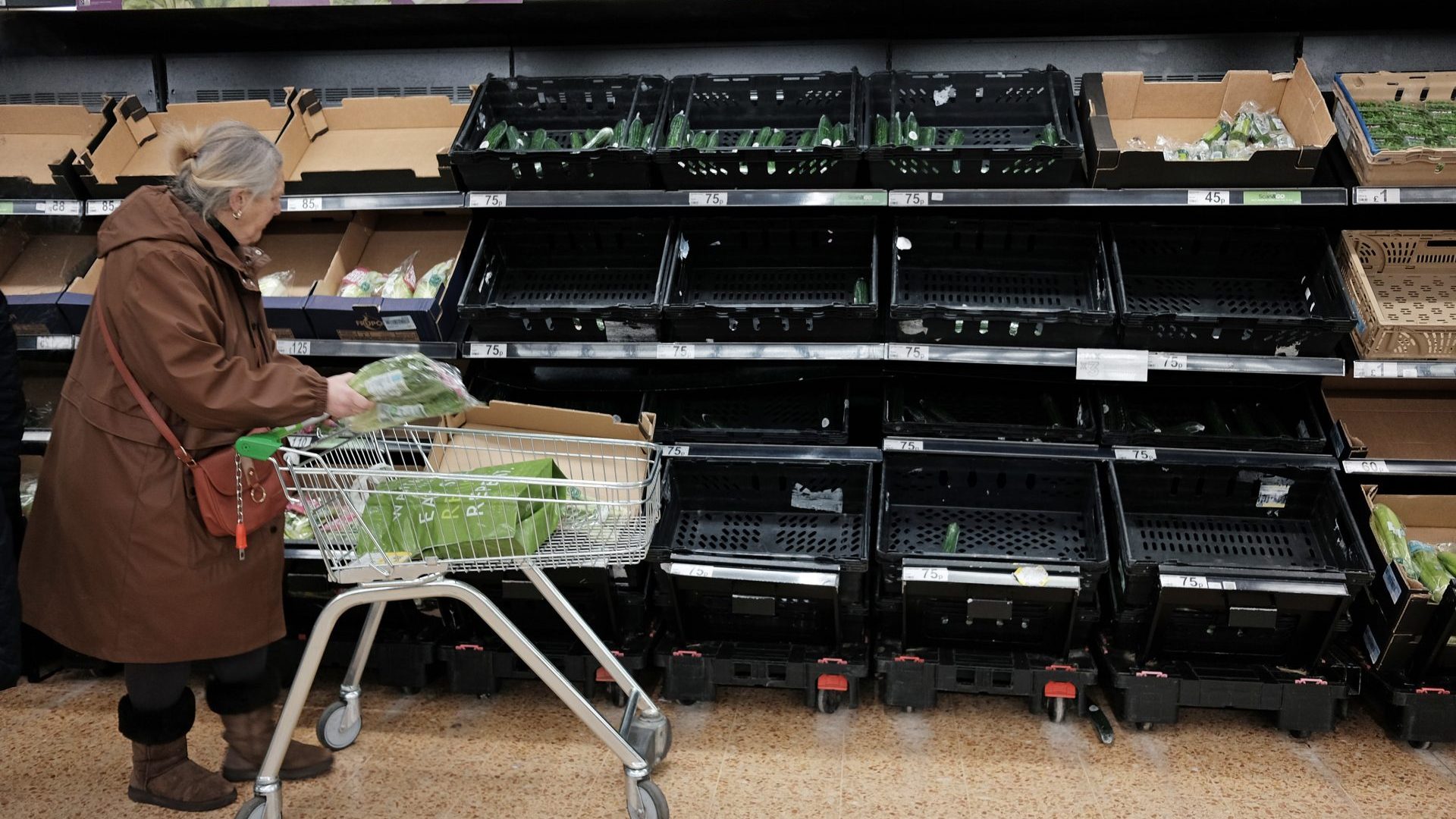Where are all the tomatoes? This is the latest – albeit unexpected – question from the Brexit fallout.
Recently, people have taken to social media to share photos of empty sections across UK supermarkets. Where tomatoes are usually found, empty trays now reside. It’s the result of a vast shortage in supplies, owing partly to a decision by Morocco – which post-Brexit, provides a quarter of Britain’s tomatoes – to restrict supplies in an attempt to control prices.
The supply shortage has been caused by what agriculture produce-focused media outlet Fruitnet is calling a “perfect storm”. Extreme weather conditions in Spain and Morocco, flooding and cold temperatures have all added to the decline in tomato supplies to the UK. Ferries cancelled due to these conditions have also had an impact.
As a result, prices have soared, rising to three times the normal rates, which explains Morroco’s decision to restrict its exports to the UK.
As ever, this new embarrassment for Britain comes with a Brexit angle. Because for every shared social media photo of empty shelves here, there’s one of tomatoes on sale in EU countries. If they’re in such short supply, why?
The crisis has coincided with the start of the National Farmers Union conference in Birmingham, and one farming group is partly blaming you-know-what.
In a video, Save British Farming chair Liz Webster said: “The reason that we have food shortages in Britain, and that we don’t have food shortages in Spain – or anywhere else in the European Union – is because of Brexit, and also because of this disastrous Conservative government that has no interest in food production, farming or even food supply.”
Although Britain did sign a trade deal with Morocco in October 2019 – hence all those tomatoes in times of plenty – it’s not as valuable much to the North African country as the EU-Morroco Association Agreement, which was signed in 1996 and came into effect on 1 March 2000. This set up a free trade area between Morocco and 27 EU countries, and was built on with an extra trade agreement in October 2012.
It all makes the EU Morocco’s largest trade partner, accounting for 56% of its goods and trade in 2019. It’s an essential relationship, one not to be toyed with. Hence the country’s surplus tomatoes will be supplying the EU’s 27 independent countries – closer to home, after all, before the UK.
Yet there should have been a saving grace for Britain – the large polytunnels in Kent which supply many supermarkets with fruit and vegetables. Why aren’t they delivering?
A government decision to exclude them from help with energy bills has meant that the heaters have not gone on this year, while staffing levels are also lower because EU workers have gone home.
While acknowledging the impact of poor weather, former Sainsbury’s CEO Justin King told LBC: “North Kent, in Thanet, [had] the largest greenhouses in Europe, which used to be full of peppers, cucumbers and tomatoes. But those greenhouses have suffered, really, from two big things. I hate to say it… but it’s a sector that’s been hurt horribly by Brexit.”
It looks like it’s another case of rotten (or rather no) tomatoes for Brexit Britain.










